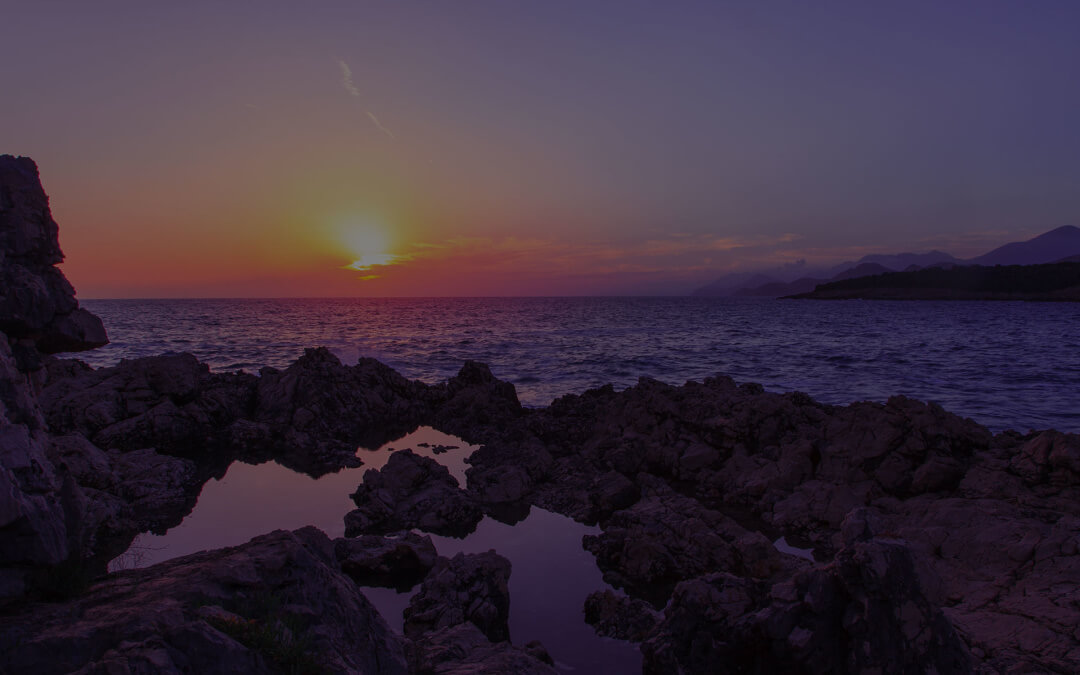Many years ago, there was a siege of a city called Troy. Odysseus was a Greek prince and the king of an island on the west coast of Greece, called Ithaca. Upon hearing news of the war, the wise Odysseus realised that the war would be long and destructive and was unwilling to go. He had only recently married a good and beautiful wife and had a young son. To avoid the war, he pretended to be mad. He brought his plough down to the sea-shore and ploughed the sand. Someone took his son and placed him in front of the plough to test his seeming insanity; Odysseus stopped the plough. “This man is not really mad”, they said. And so, he was forced to go off to war. His journey is the story of his efforts to get back home.
The fabled journey of Odysseus with its mysteries and initiations offers the fullest possible adventure of life. He is driven out of his familiar world into a wonderland where he is constantly tested and challenged, in the process winning the fruits of higher knowledge and deeper living. “Sing in me, Muse, of the man of many ways” begins the tale. Odysseus has become a symbol – he symbolises the urge to explore, to know, to go beyond. He not only embodies the qualities of strength and bravery, customary of all great heroes, but he is polymetis – the man of many wiles, or clever in many ways. He is a trickster, often cleverly manipulating others to do what he wants. Our hero is the man of many devices, capacities, facets. He is, what Jean Houston refers to as, the ‘many-potentialed being’, who, by journey’s end, has seen everything, done everything, understood everything.
Odysseus said goodbye to a tearful Penelope. With his men, they set sail in the long ships out over the wine-dark sea. For nine bloody years the Greek army laid siege to the golden city of Troy, the war raging, under the watchful eye of the gods, who looked on, high up on Mount Olympus. In the tenth year the Greeks tricked their way into Troy and amidst blood and fire they laid the golden city to ruin. Triumphant, one by one, the Greek Kings made their way home over the sea. All except for Odysseus.
Odysseus understood that at the moment of one’s greatest power, that is the time when we are most susceptible to hubris. The abuse of power or falling into arrogance can quickly bring the wrath of the gods upon one’s head.
He had 12 ships with him, with roughly 50 men in each ship. Odysseus desperately wanted to return home. He and his men were weary from war. As they set out, the wind was in their favour, but they only had enough water and food to last a few days. As they sailed down the coast, they came to the city of Cicones where they went ashore slaying the men and plundering whatever supplies they could secure. Odysseus ordered them back to the ships but they refused to obey; they wanted nothing more than to rest and to feast. They barbequed meat from the cattle and broke open barrels of wine. By nightfall they could barely move and sat slumbering on the beach.
The Odyssey is a story of resourcefulness. It is a tale of survival in which the hero adapts and changes, skilfully managing his circumstances. He engages in choice and risk; he is tenacious and active. Even when he fails, he succeeds, for he is forced then to draw on deeper resources within himself. Odysseus is not just an homage to human strength but he is equally prone to weakness and imperfection.
Meanwhile the remaining Cicones had been gathering reinforcements, and like a might wave the wild army swept down from the hills catching Odysseus’ men off guard, butchering seventy of them. The rest fled, helpless and terrified back to the ships. Their troubles were not ended when they reached the ships. As they set sail a great black storm blew in, ripping their sails and tossing their tiny vessels around the ravenous, roaring sea for nine days, blowing them hopelessly off course and out into wilder waters. Amidst the constant clouds of the storm not even Odysseus could tell where they were.
‘Odysseus’ means ‘trouble’ in ancient Greek. The tale of the Odyssey is Homer’s reflection upon all the sadness and trouble that life can bring. A recurring failure is his inability to choose wisely; repeatedly he acts rashly with little thought, often resulting in disastrous consequences. It is Odysseus’ constant curiosity and courage that leads him into unnecessary explorations, often leading his men to their doom.
The path of folly begins when against his better judgement he chooses to attack the Ciconians rather than simply setting sail for home after the triumph in the Trojan war. In this Odysseus shows how all humans are prone to getting dragged off course on the path of life into unnecessary diversions. But the lesson here is that it is often these very diversions and blunders that prove to be the real gold in helping us learn and grow.
Odysseus is a mirror for humanity. He offers us a reflection of both our weaknesses and our strengths. In him we see our folly, but also, crucially, we glimpse our own potential that perhaps can only begin to emerge in the trouble and crises that arise in our own lives.

